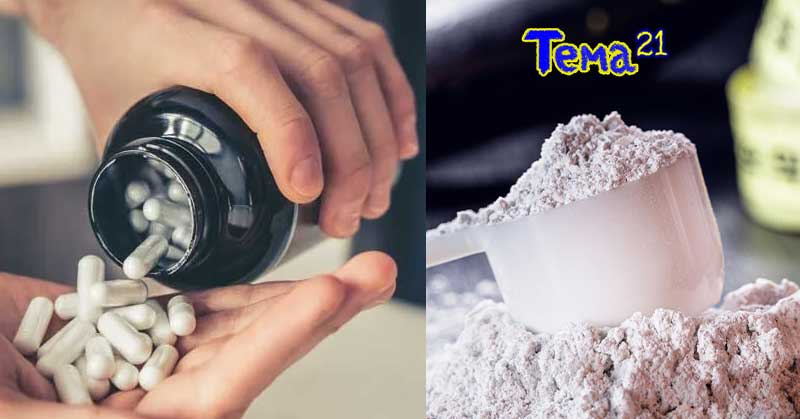You may have heard about the popular supplement called creatine that many bodybuilders use to enhance their workout performance. But have you ever wondered if creatine is considered “natty” or natural? Well, the answer may surprise you!
In this article, we will delve into the truth about creatine use in bodybuilding and uncover whether it’s truly a natural supplement or not.
Creatine is a naturally occurring compound that is found in small amounts in foods like meat and fish. It is also produced by the body in small quantities. However, when it comes to the creatine used by bodybuilders, it is typically in the form of a supplement that is taken in larger doses to maximize its effects.
Despite being found naturally in certain foods and produced by the body, some individuals argue that using creatine as a supplement may not be entirely “natty” or natural. The reasoning behind this is that the amount of creatine consumed through supplementation is much higher than what is naturally present in the diet.
However, the effectiveness of creatine as a workout supplement is undeniable, and many bodybuilders swear by its benefits. To learn more about the use of creatine in bodybuilding and whether it truly falls under the category of “natty,” keep reading our article.

What is Creatine?
Creatine is a naturally occurring compound found in the body, primarily within the muscles. It plays a crucial role in providing energy during high-intensity exercises, such as weightlifting and sprinting. While the body can produce creatine on its own, it can also be obtained from dietary sources like meat and fish.
Understanding the basics of creatine use in bodybuilding
In the world of bodybuilding, creatine has gained immense popularity as a supplement for enhancing athletic performance and muscle growth. It is widely used by bodybuilders and athletes to improve strength, power, and overall physical performance.
How creatine is produced in the body
Creatine is synthesized in the body from three amino acids: glycine, arginine, and methionine. These amino acids are primarily obtained through the consumption of various proteins in our diet. Once these amino acids are present in the body, they undergo a series of chemical reactions in the liver, kidneys, and pancreas to form creatine.
Types of Creatine
Exploring the different forms of creatine available in the market
When it comes to creatine supplementation, there are several different forms available on the market. The most common types include creatine monohydrate, creatine ethyl ester, creatine hydrochloride, and micronized creatine.
Creatine monohydrate is the most extensively researched and widely used form of creatine. It is known for its effectiveness in increasing muscle strength and size.
Which type of creatine is most commonly used in bodybuilding
Among the various types of creatine available, creatine monohydrate is the preferred choice for most bodybuilders and athletes. It has a long history of scientific research supporting its effectiveness and safety. Additionally, it is also more affordable compared to other forms of creatine.

Benefits of Creatine
Enhanced strength and power output
One of the primary benefits of creatine supplementation is its ability to enhance strength and power output. Creatine plays a vital role in the production of adenosine triphosphate (ATP), which is the primary source of energy for muscle contractions during high-intensity exercises. By increasing creatine levels in the muscles, individuals can experience improved strength and power, leading to better performance in the gym or on the field.
Increased muscle mass and size
Creatine has also been found to promote muscle growth by increasing protein synthesis and muscle cell volumization. When creatine levels are elevated in the muscles, it attracts more water, resulting in increased muscle cell size. This increase in muscle size can contribute to a more muscular physique and improved overall body composition.
Improved exercise performance and recovery
Creatine supplementation has been shown to enhance exercise performance and improve recovery. By providing more energy to the muscles, creatine allows individuals to perform at a higher intensity for longer durations. Moreover, creatine has been found to reduce muscle damage and inflammation, leading to faster recovery between workouts.
Is Creatine Natural?
Clarifying misconceptions regarding the natural status of creatine
Creatine is often questioned for its natural status, as it is commonly associated with the use of synthetic supplements. While it is true that some forms of creatine supplements are synthesized in a laboratory, creatine itself is a naturally occurring compound found in the body and various food sources.
Understanding the origin of creatine supplements
Creatine supplements are derived from natural sources such as animal proteins, particularly meat and fish. These supplements go through a purification process to isolate creatine and remove impurities. Therefore, while the creatine supplement may not come directly from a natural food source, it is still derived from natural compounds.

Scientific Studies on Creatine
Examining the research on creatine supplementation
Creatine supplementation has been extensively studied in the scientific community, with numerous research studies investigating its effects on athletic performance and muscle growth. These studies consistently demonstrate the benefits of creatine supplementation in enhancing strength, power, and muscle mass.
Does scientific evidence support claims about creatine’s effectiveness
The scientific evidence overwhelmingly supports the effectiveness of creatine supplementation. Multiple studies have shown significant improvements in strength, power, and muscle size in individuals who supplement with creatine compared to those who do not. Furthermore, creatine has been shown to be safe for short-term and long-term use when taken within recommended dosages.
Potential Side Effects
Exploring possible adverse effects of creatine use
While creatine is generally considered safe, some individuals may experience side effects. These side effects are typically mild and include gastrointestinal discomfort, bloating, and water retention. It is important to note that these side effects are not experienced by everyone and are generally temporary.
Safety considerations for long-term creatine supplementation
Studies have shown that creatine supplementation is safe for long-term use when taken within recommended dosages. However, individuals with pre-existing kidney or liver conditions should consult with their healthcare provider before starting creatine supplementation. It is also important to stay adequately hydrated when taking creatine to minimize the risk of potential side effects.

Creatine and Athletic Performance
Analyzing the impact of creatine on athletic performance
Creatine’s impact on athletic performance has been well-documented. By increasing energy availability in the muscles, creatine supplementation can enhance strength, power, and sprint performance. This can be particularly beneficial for athletes involved in sports that require explosive movements, such as sprinting, jumping, and weightlifting.
How does creatine benefit bodybuilders and athletes
For bodybuilders and athletes, creatine supplementation can provide a competitive edge by allowing them to train at a higher intensity, lift heavier weights, and recover faster between workouts. This can ultimately lead to increased muscle mass, strength gains, and improved overall performance.
Proper Dosage and Timing
Understanding the recommended dosage of creatine
The recommended dosage for creatine supplementation is typically around 3-5 grams per day. It is important to follow the dosage instructions provided by the specific creatine supplement manufacturer. Additionally, it is advised to start with a loading phase of approximately 20 grams per day for the first five to seven days to quickly increase muscle creatine stores.
Optimal timing for creatine supplementation
While creatine can be taken at any time of the day, research suggests that consuming creatine after a workout may be beneficial due to increased insulin sensitivity and muscle uptake. However, the timing of creatine intake is not as critical as consistently taking the recommended dosage each day.

Complementary Supplements
Other supplements that can be taken alongside creatine
Creatine can be stacked with other supplements to maximize its benefits. Some popular complementary supplements include protein powder, branched-chain amino acids, and beta-alanine. These supplements can further support muscle growth, recovery, and performance when combined with creatine.
Maximizing the benefits of creatine with additional supplements
Protein powder, in particular, works synergistically with creatine to provide the necessary amino acids for muscle protein synthesis. Branched-chain amino acids (BCAAs) can aid in muscle recovery and reduce muscle soreness, while beta-alanine has been shown to increase muscular endurance.
Conclusion
In conclusion, creatine is a natural compound that plays a crucial role in energy production within the muscles. It has proven to be an effective supplement for bodybuilders and athletes by enhancing strength, power, muscle mass, and exercise performance.
While some individuals may experience mild side effects, creatine supplementation is generally safe when taken within recommended dosages. Stacking creatine with complementary supplements like protein powder, BCAAs, and beta-alanine can further maximize its benefits.
So, if you’re considering adding creatine to your bodybuilding regimen, rest assured knowing that it is a natty and scientifically supported supplement that can take your performance to the next level.




